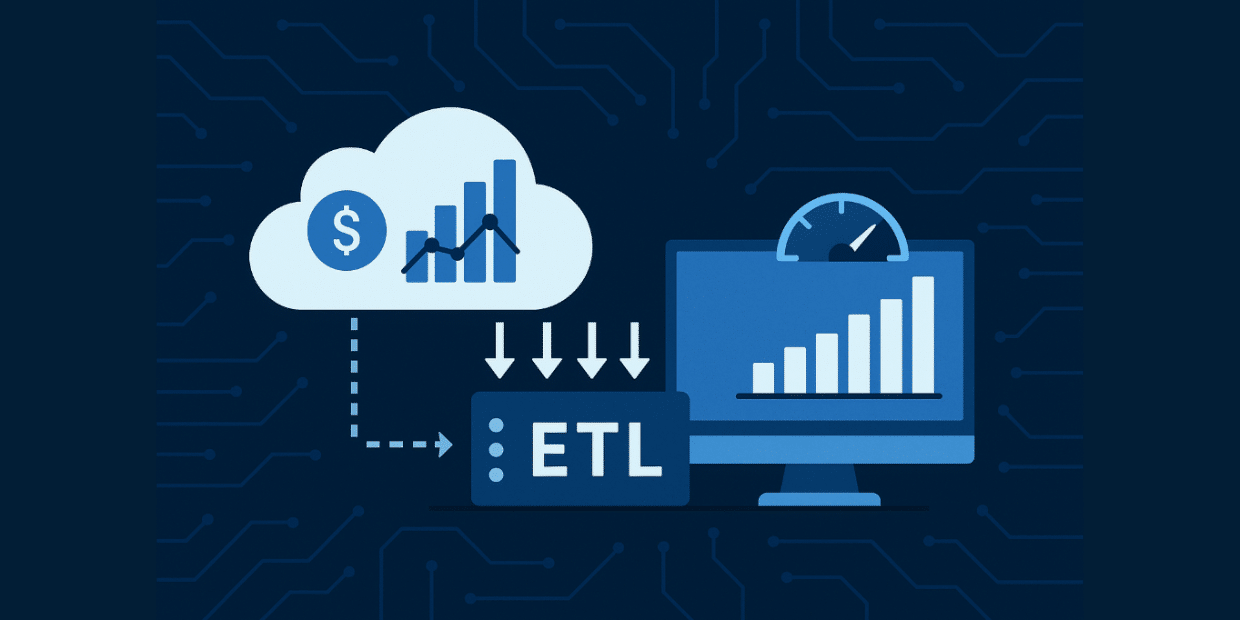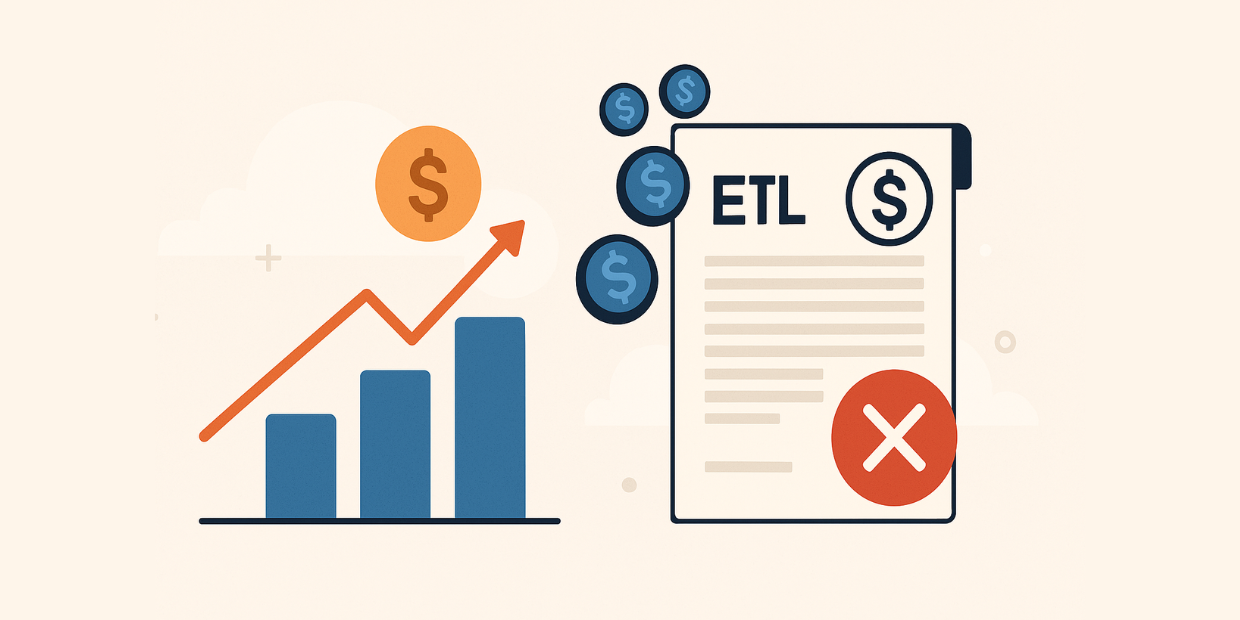Get the latest AI, data, and technology insights from Matatika’s experts direct to your inbox.
-
How To Reduce ETL Costs Without Sacrificing Performance
Cloud providers like AWS are introducing AI-powered cost transparency tools, while ETL vendors remain silent, continuing to profit from opaque, row-based pricing models that penalise efficiency and scale. By switching to performance-based pricing and auditing pipeline usage, data teams can cut ETL costs by up to 50% without sacrificing performance.
Read the article -
8 Hidden Costs in Row-Based ETL Pricing (And How to Eliminate Them)
Row-based ETL pricing models conceal hidden costs such as duplicate processing, unchanged record syncing, and development retries, leading to inflated bills that often do not reflect actual data value. Shifting to performance-based pricing aligns costs with real infrastructure usage, enabling predictable budgeting, greater efficiency, and funding for innovation.
Read the article -
When Kiss Cams Go Wrong: What Astronomer’s PR Crisis Reveals About Vendor Culture
Astronomer’s PR mishap responding to a kiss cam controversy by hiring a celebrity, spotlights a deeper issue in vendor culture: misplaced priorities and poor judgment under pressure. For data leaders, it raises critical concerns about whether vendors invest in engineering excellence or opt for brand theatrics when things go wrong.
Read the article -
The Conversations Data Leaders Are Planning for Big Data LDN 2025 (But Won’t Admit Publicly)
The real value of Big Data LDN 2025 lies not in vendor pitches or keynote sessions, but in candid corridor conversations among data leaders grappling with vendor fatigue, renewal pressure, and cost consolidation. As budgets tighten and complexity rises, the smartest teams are shifting from reactive tool dependency to proactive strategies that prioritise flexibility, performance-based pricing, and long-term efficiency.
Read the article -
Your Biggest Budget Line Isn’t Tools – It’s Time Wasted
Many data teams waste budget by misusing senior engineering talent on firefighting tasks and poor tool choices, rather than focusing on high-value, strategic work. High-performing teams prioritise experienced hires, measure business impact, reduce reactive work, and use AI and tools strategically to maximise ROI and team effectiveness.
Read the article
Data Leaders Digest
Stay up to date with the latest news and insights for data leaders.





